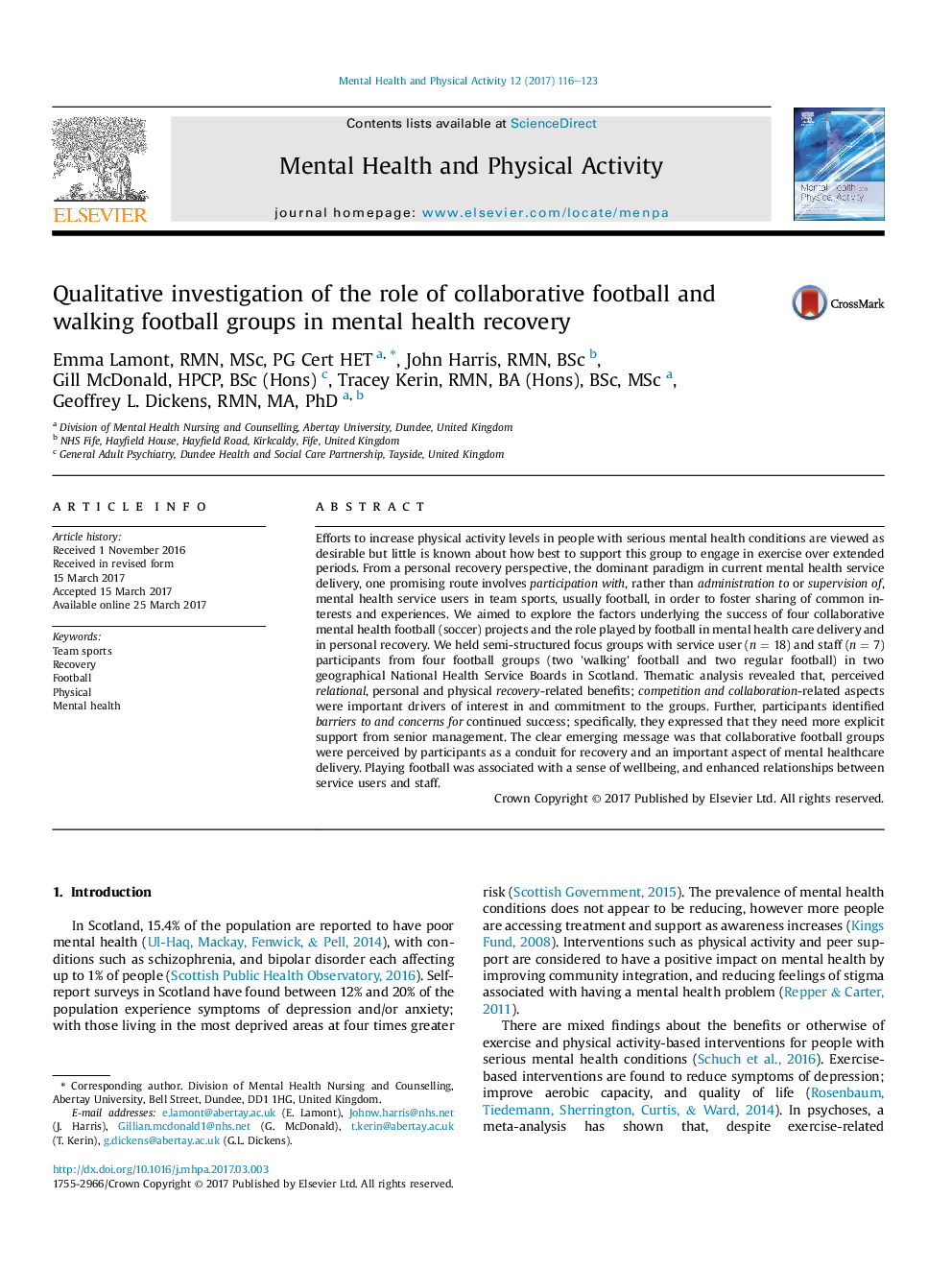| کد مقاله | کد نشریه | سال انتشار | مقاله انگلیسی | نسخه تمام متن |
|---|---|---|---|---|
| 5039478 | 1473225 | 2017 | 8 صفحه PDF | دانلود رایگان |
- Central to success, were perceived relational, personal and physical recovery-related benefits.
- Competition and collaboration related aspects were important drivers of interest in and commitment to the groups.
- Participants identified the need for explicit support from higher echelons of management and service design.
- Perceived by participants as a conduit for recovery and an important aspect of care delivery.
- Playing football was associated with a sense of wellbeing, and enhanced relationships between service users and staff.
Efforts to increase physical activity levels in people with serious mental health conditions are viewed as desirable but little is known about how best to support this group to engage in exercise over extended periods. From a personal recovery perspective, the dominant paradigm in current mental health service delivery, one promising route involves participation with, rather than administration to or supervision of, mental health service users in team sports, usually football, in order to foster sharing of common interests and experiences. We aimed to explore the factors underlying the success of four collaborative mental health football (soccer) projects and the role played by football in mental health care delivery and in personal recovery. We held semi-structured focus groups with service user (n = 18) and staff (n = 7) participants from four football groups (two 'walking' football and two regular football) in two geographical National Health Service Boards in Scotland. Thematic analysis revealed that, perceived relational, personal and physical recovery-related benefits; competition and collaboration-related aspects were important drivers of interest in and commitment to the groups. Further, participants identified barriers to and concerns for continued success; specifically, they expressed that they need more explicit support from senior management. The clear emerging message was that collaborative football groups were perceived by participants as a conduit for recovery and an important aspect of mental healthcare delivery. Playing football was associated with a sense of wellbeing, and enhanced relationships between service users and staff.
Journal: Mental Health and Physical Activity - Volume 12, March 2017, Pages 116-123
